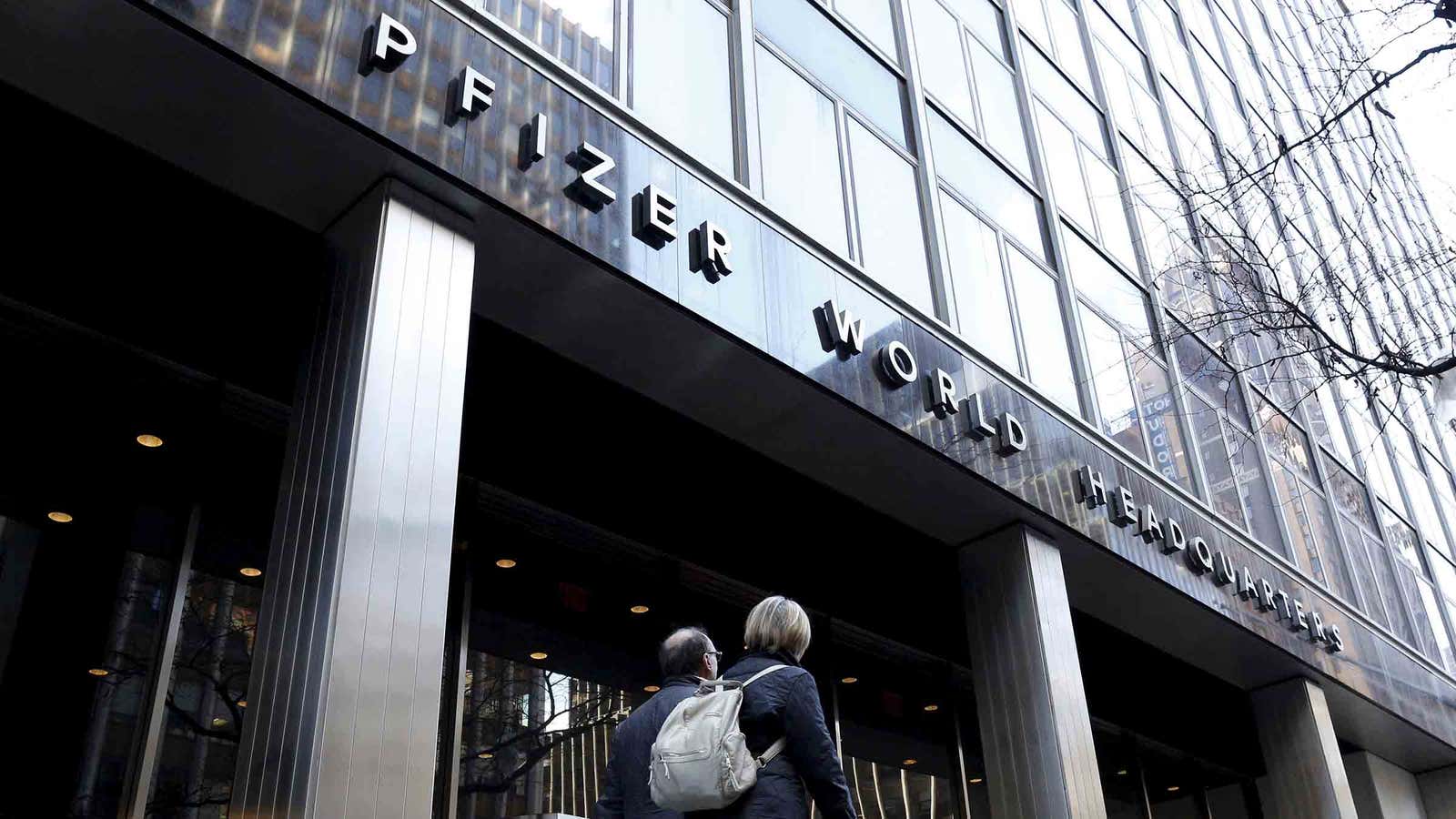Drug giants Pfizer and Allergan have called off their $160-billion combination today (April 6), after the US Treasury announced new rules this week that aimed at curbing “inversions,” in which a US company is taken over by smaller foreign rival and then relocates its headquarters overseas to pay less US tax.
It is unclear exactly how much Pfizer, which was founded in Williamsburg, Brooklyn, in 1849, would have saved in US taxes by moving its corporate headquarters from New York to Dublin, Ireland, but some estimates said it could have been as much as $35 billion. Inversions have become increasingly unpopular in the US in recent years, particularly with cash-strapped local and national government offices who complain they’re pulling much-needed capital from their budgets.
Perhaps that’s why Allergan and Pfizer took pains to present the deal when it was first announced as a great combination that just happened to have some tax benefits.
After all, nearly 90% of mergers fail to boost shareholder returns, and this combination would put combine Pfizer’s 95,000 employees with Allergan’s 15,000 to create a far-flung business empire that was unprecedented in the pharmaceutical business.
Executives from the two companies held a call with analysts on Nov. 23, 2015 to explain the benefits of the deal, complete with a presentation bursting with business buzzwords like “optionality,” “synergies” and “best-in-business.”

Among other benefits, Pfizer CEO Ian Read said at the time, Allergan would bring Pfizer “attractive therapeutic areas with good growth potential,” “enhance our prominent established products business,” and “expand our growth profile by providing an immediate revenue growth engine during the period when our recent product launches continue to ramp up.” Allergan’s Botox and other cosmetic lines would boost the combined company’s profitability, and the companies together could expect $2 billion in annual cost synergies.
“I want to stress that we are not doing this transaction simply as a tax transaction” Pfizer CEO Ian Read said at the time. “We are doing this because of the strategic importance of the franchises, the revenue growth we believe we can get within the US and internationally, and the importance to combine the research approaches.”
This week’s US Treasury announcement, though, went even further than expected in trying to block inversions, and Pfizer’s board decided not to go ahead with the deal.
Apparently, the “meaningful synergies” between the two companies were not so meaningful after all.
